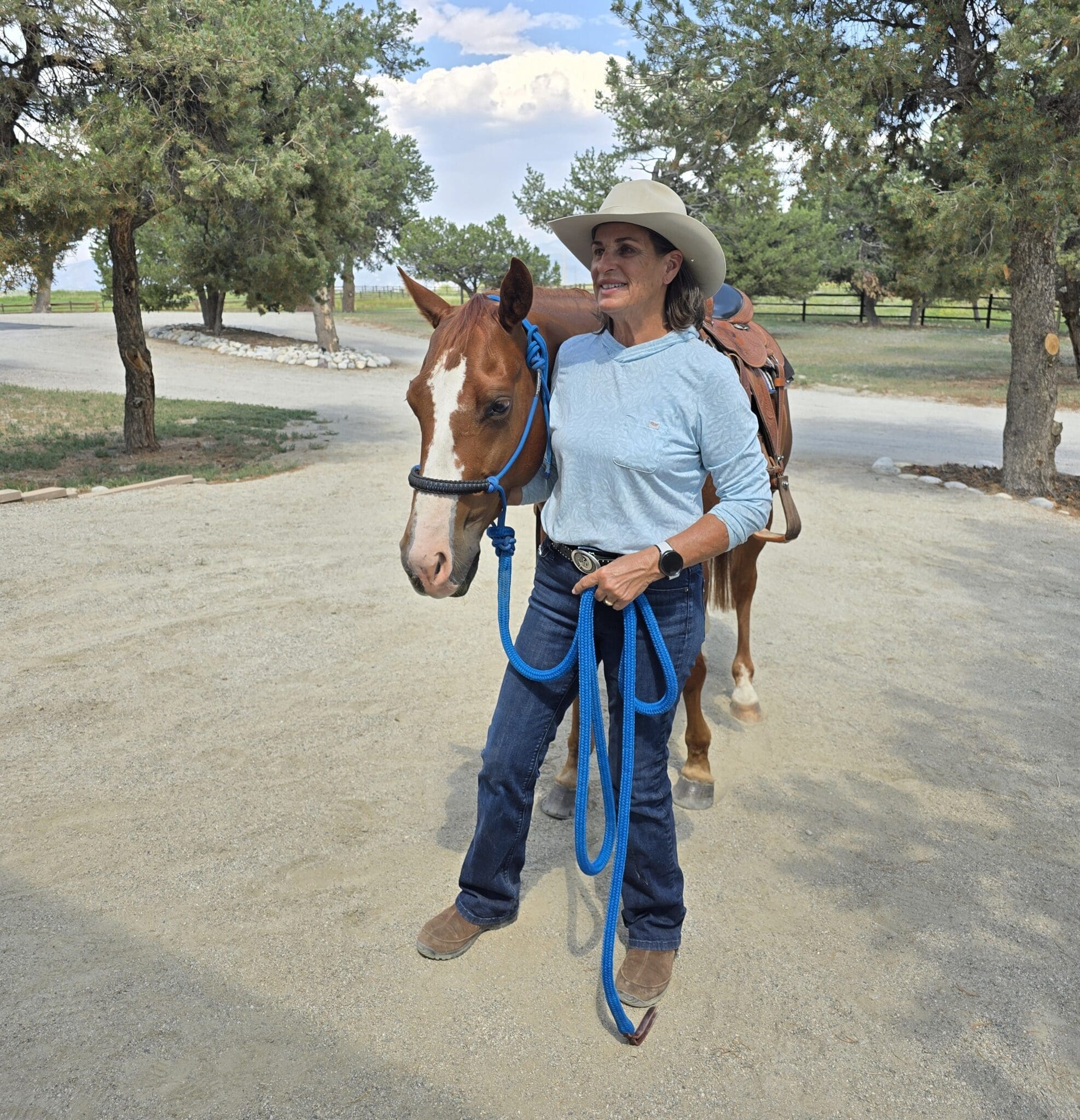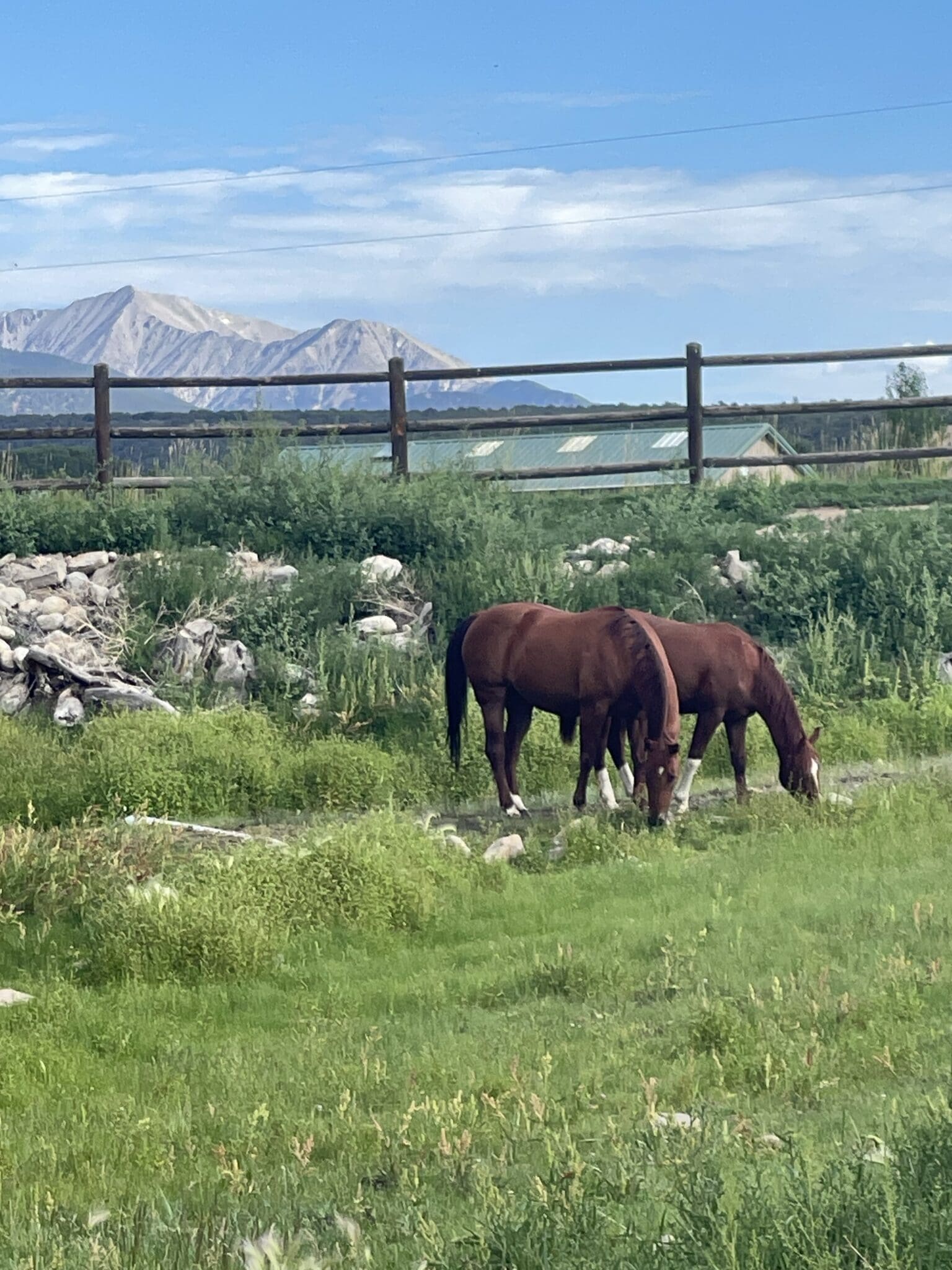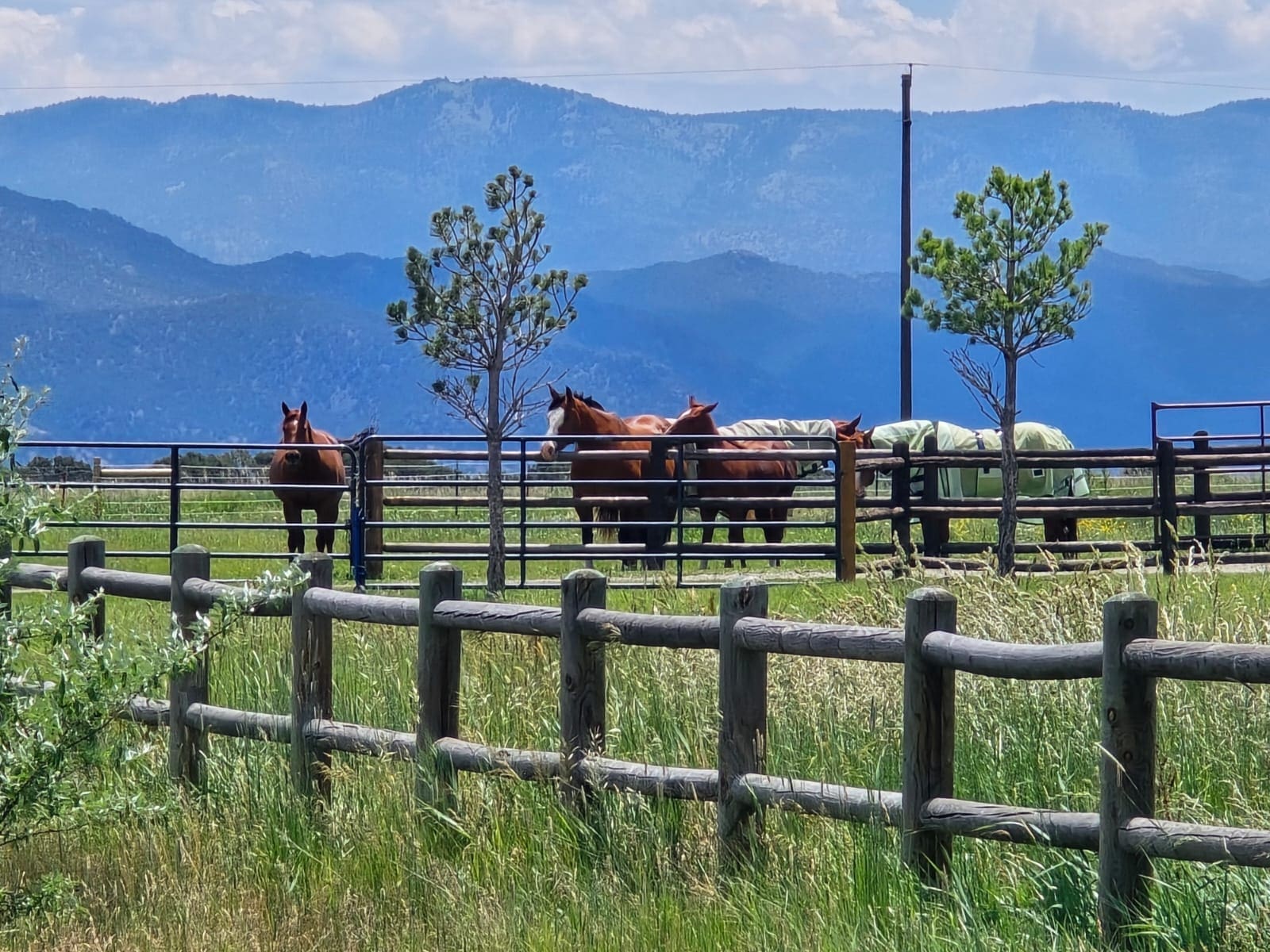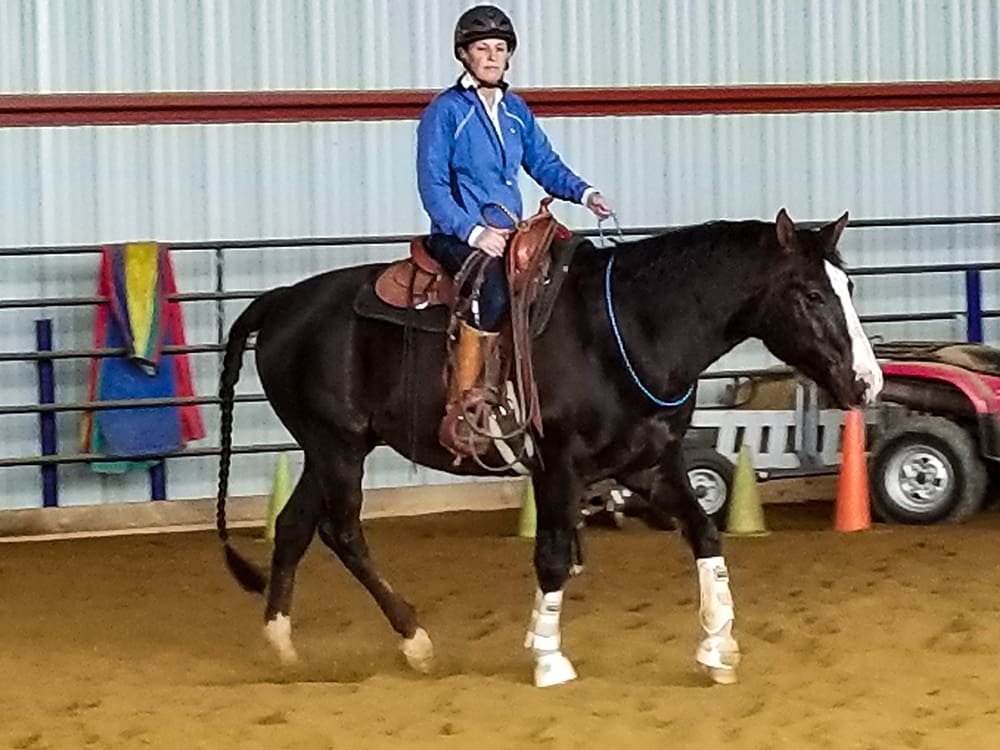The other night, about dinner time, I got a call from one of my dear friends, Lucy. She was distraught and needed advice on how to deal with her severely colicking horse; we talked it through and she was able to make the right decisions regarding her beloved horse, Scout. The horse was in major distress and the vet said that the only two treatment options remained at that point: surgery or euthanasia. As Lucy and I talked through her options and came up with a plan, it occurred to me that this is something everyone should think out ahead of time so that you are not making these hard emotional decisions in the heat of the moment.
When to euthanize an animal is not always an easy decision, particularly when the animal is young and especially when the condition comes on suddenly. In Lucy’s case, Scout was an awesome trail horse; she had raised from birth on the family ranch, had him trained when he came of age (I had the pleasure of starting him under saddle about 15 years ago) and Lucy had ridden hundreds of miles of Rocky Mountain trails on him over the years. And now, just hours after taking a lovely ride that morning, the horse lay thrashing, dying of colic. There are few more desperate sights than a horse writhing in pain. But for Scout and Lucy, colic surgery was not really a viable option, making the decision to ends Scout’s pain and suffering much easier to make.
Colic surgery is simply not an option for every horse or every owner and there are many factors that play into this decision. First, not all colic cases are treatable with surgery and your vet will have a better idea of the options. But even if your horse is a candidate for surgery, there are other factors that should be considered before a decision is made, concerning how much the horse is suffering, his chances for survival, length and difficulty of transport to a surgery center and the financial feasibility. Colic surgery is not a miracle cure; it is an expensive endeavor with low rates of survival.
One of the first things to consider when faced with this difficult decision is how long a drive it is to the surgery center and can the horse stand up and survive the trip, still retaining a reasonable chance of surviving the surgery? For us, here in the Colorado mountains, the nearest surgery center is about a three hour drive through the mountains; that makes the decision easier. Few horses that are sick enough for surgery would survive that trip and still have enough reserves to survive the surgery and post-op. Adding the stress of hauling in a trailer could lead to additional suffering for the horse, only to have him die on the trailer or on the operating table. Before jumping in a trailer and heading down the road, all of these factors should be considered.
If you are much closer to a colic surgery center and the horse’s pain/distress level are manageable enough with drugs that you could make it to the surgery center, the unfortunate question of practicality must be addressed. You must consider the horse’s chances for survival, the cost of the surgery and post-op care, the amount of suffering the horse will endure, whether or not you can personally afford it and the value of the horse. 72% of colic cases can be treated medically and do not require surgery. About 15% of colic cases are good candidates for surgery but sadly, only 50% of the horses that go into surgery will survive long enough to go back home. Of the horses that survive surgery and go home, another 50% of those horses will have mild to severe complications in the next year and a number of those will need to be euthanized.
Colic surgery can cost from $5,000 to $10,000 and up, depending on post-op complications; you don’t get your money back if the horse dies. In today’s market, ten grand can buy a pretty nice horse. So, pardon my frankness but you need to rationally consider whether or not you can afford to drain your savings account, taking a big risk that your horse might die anyway, after much suffering on his part. I have known many horses that have survived colic surgery and gone on to live healthy and useful lives. Certainly many horses have a high enough value, either financially or emotionally, that the cost of colic surgery is warranted, but it is a personal decision that can only be made by you, given your circumstances. When horses are the owners are good candidates, it can be wonderful thing.
These issues are much easier to think through in the non-emergent everyday reality than in the heat of the moment as your horse lays helpless and in agony. If you find these decisions too hard to make, you might consider getting major medical insurance on your horse, which would cover some of the costs of surgery. Also, mortality insurance can help you replace your horse or pay for the surgery if he dies.
Colic is the number one killer of domestic horses; if you are around horses long enough, you will sooner or later find yourself dealing with a sick horse and in the position to make critical decisions about his treatment and care. It is always best to go into these situations armed with knowledge and a plan, rather than make agonizing and expensive decisions standing in your barnyard in the middle of the night .
Once you have decided if colic surgery is a viable option, it will guide your other decisions. If you have ruled out surgery, then your vet will consider other options for treatment. Impactions and spasmodic colic are usually successfully treated with drugs and medical procedures. If your horse’s pain is controllable through medications, he may be able to ride it out. If your horse’s pain can be controlled with drugs and he can rest comfortably for four or five hours between doses, he may be able to pull through the colic. On more than one occasion, I have seen horses that I thought would die in the night, standing bright and alert in the morning. If the drugs do not control his pain at all or if they only keep him comfortable for a short time, it is possible that the kindest thing to do at this point is euthanize your horse.
I hope you are never faced with these anguishing decisions but if you are, it is far better to know the facts up front and to have thought out what your realistic options are ahead of time. If your horse is put down (or if he dies naturally), you must also know what your options are for disposing of the carcass. In most places, burial is not allowed (check your state and local laws) so you’ll need to know if there is a renderer that will come pick up the carcass or what other options there are for disposal (AQHA Daily had an excellent article by Becky Newel on this subject on August 4, 2010). Since the horse has been poisoned, his remains must be disposed of so that other animals (scavengers) are not inadvertently poisoned.
I know that many of you reading this have already faced these sorts of tough decisions and have spent at least one long and agonizing night with a colicky horse, slogging in the mud in your PJ’s. Probably more of you than I would hope have had the gut wrenching experience of losing a horse to this devastating disease. What helped you the most and what would you have done differently if you could?
Next time I promise to write about something more fun!
All the best,
Julie



